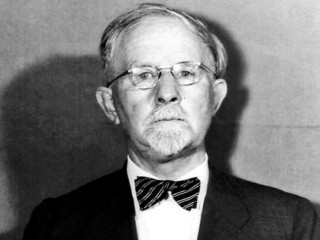
Walter Hess biography
Date of birth : 1881-03-17
Date of death : 1973-08-12
Birthplace : Frauenfeld, Switzerland
Nationality : Swiss
Category : Science and Technology
Last modified : 2011-12-20
Credited as : Physiologist, Brain mapping, Nobel laureate
0 votes so far
Hess was born in Frauenfeld. He received his medical degree from the University of Zürich in 1906 and trained as surgeon and ophthalmologist. In 1912, he left his lucrative private practice as an ophthalmologist and went into research. His main interests were the regulation of blood flow and respiration.
As an outgrowth of these research interests, he began mapping the parts of the diencephalon that control the internal organs. From 1917 to 1951, he served as professor and director of the Department of the Physiological Institute at the University of Zürich.
His primary area of research was blood circulation and the respiratory system, but his most famous work involved mapping the brain. Experimenting on living cats and dogs that had tiny needles piercing their skulls, he was able to ascertain which parts of the brain control various functions and internal organs.
With pressure on a cat's brain, he could trigger a panicked response in the animal, even control its heartbeat and breathing. Hess and Portuguese neurosurgeon Egas Moniz shared the 1949 Nobel Prize in Physiology or Medicine.
Author of books:
-The Biological Aspect of Psychology (1962)
-The Biology of Mind (1964)
















